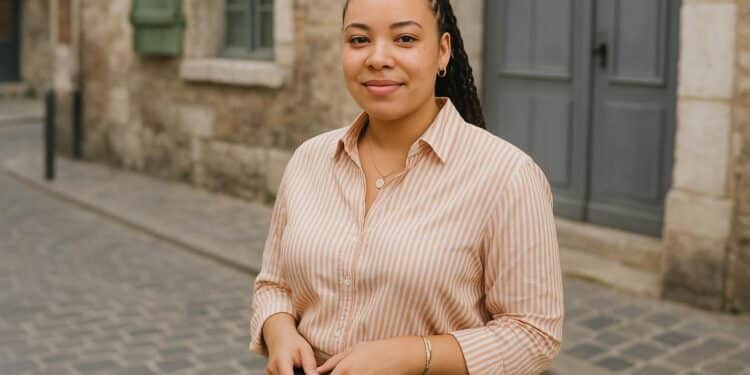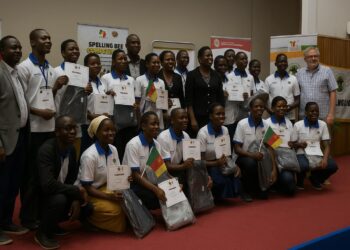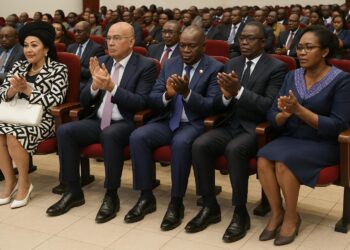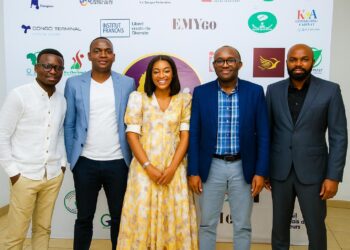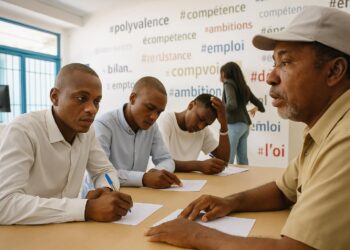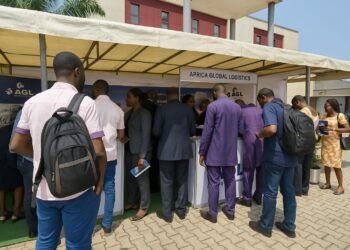Paris award underlines emerging female leadership
The organising committee of the upcoming African Solutions Week, scheduled in Paris on 24-25 October, has awarded Hod Fragonard the honorary medal of Ambassador of Solutions for Africa. The distinction recognises her contributions to inclusive development and positions her among the francophone continent’s rising female leaders.
While the ceremony will be largely symbolic, the title carries operational weight; organisers indicate that each laureate is expected to identify actionable programmes, mobilise partners across regions and report progress during the following edition. Fragonard therefore enters a network where accountability and visibility mutually reinforce.
Brazzaville roots and Franco-Congolese expertise
Born in Brazzaville in 1992 and trained in public law and immigration law in France, Fragonard embodies the circular talent flows that many policymakers seek to accelerate. Her dual identity allows her to navigate administrative cultures and translate continental priorities for European interlocutors without losing nuance.
After an early assignment at the Aube prefecture, she observed systemic bottlenecks facing foreign applicants. The experience informed her entrepreneurial pivot: rather than criticising institutional inertia, she chose to create complementary services that ease compliance, reduce processing errors and ultimately strengthen lawful mobility between Africa and Europe.
Lotus Services as a compliance bridge
Founded in 2018 in Frayes, Lotus Services assists non-EU nationals with residence permits, naturalisation files and other administrative procedures. By systematising document checklists, scheduling support and legal coaching, the company mitigates rejection risks that otherwise delay integration or investment plans.
Stakeholders following diaspora remittance patterns often overlook administrative frictions. Fragonard’s model indirectly safeguards capital flows; each regularised resident retains access to banking, employment and travel, sustaining transnational liquidity. Her clientele spans Congolese students, Ivorian tech workers and Cameroonian entrepreneurs, underscoring the pan-African relevance of procedural efficiency.
Yokela Koluka enhances youth employability
In 2020 she launched Yokela Koluka, literally ‘search and find’ in Lingala, as an association operating simultaneously in France, Brazzaville and Pointe-Noire. The project delivers online workshops, in-person coaching and corporate partnerships designed to shorten the transition from education to dignified employment.
Its ambition is to serve as a two-way conduit: European firms gain culturally fluent interns, while Congolese graduates secure exposure to global standards. Fragonard argues that such reciprocity prevents brain drain by replacing one-way exits with circular mobility pathways that favour knowledge return over permanent departure.
Narrating resilience and convening dialogue
Her book The 22 Mantras of Resilience synthesises case studies drawn from migrants, entrepreneurs and public servants, framing adversity as a resource rather than a hurdle. The publication has circulated in diaspora reading clubs and occasionally informs her keynote addresses at development forums in Brussels, Rabat and Abidjan.
Event organisers value her moderation skills, citing her legal rigor and cross-cultural empathy. By steering panels toward actionable conclusions and assigning follow-up tasks, she converts conference visibility into measurable commitments, a practice aligned with the outcome-oriented culture promoted by African Solutions Week.
Signals for capital and policy design
Although Fragonard’s trajectory remains individual, it mirrors structural shifts: African women increasingly occupy nodes where legal knowledge, entrepreneurship and social advocacy converge. Investors tracking inclusive business pipelines may interpret her award as a micro-signal that gender-responsive ventures are gaining both recognition and institutional support.
For policymakers designing diaspora strategies, her model illustrates how administrative facilitation and youth upskilling interact. When residency status is secured efficiently, remittance-senders can channel surplus income into local projects; when young graduates perceive tangible prospects at home, migration becomes choice rather than necessity, easing demographic pressures.
Operational challenges and next steps
Scaling impact, however, demands deliberate governance. Lotus Services currently relies on a small team that can become overstretched during seasonal peaks. Fragonard is testing digital intake forms and limited automation to maintain quality control without eroding the personalised guidance that differentiates her practice.
Regulatory volatility also looms. Any future tightening of Schengen immigration rules or shifts in French prefecture workloads could affect lead times. By nurturing relations with authorities and diversifying toward corporate sponsorships, she seeks to cushion her social enterprise against exogenous policy shocks.
Building coalitions across the Congo Basin
Within Congo-Brazzaville, Yokela Koluka collaborates with municipal youth centres in Makélékélé and Tié-Tié. These partnerships supply classroom space and participant lists, while the association contributes curricula and volunteer mentors. The arrangement exemplifies cost-sharing models that can be replicated across the wider Congo Basin.
On the European side, Fragonard works with French chambers of commerce that co-host workshops on market entry regulations for African start-ups. Such bilateral frameworks align with Brazzaville’s economic diplomacy, which encourages private platforms to complement state-to-state cooperation, especially in skills transfer and SME incubation.
Expectations ahead of the 2025 awards
The African Solutions Week charter stipulates that ambassadors report quantitative indicators at the following cycle. Fragonard therefore plans to publish dashboards tracking visas facilitated, youth placements achieved and partner institutions onboarded. Transparent metrics could strengthen her credibility among funders evaluating social return on investment.
Looking beyond Paris, she hints at expanding Yokela Koluka into Kinshasa and Côte d’Ivoire, provided local hosts commit co-financing. Such cautious gradualism resonates with investors who prefer pilot-proven scaling over rapid rollouts, thereby enhancing the long-term sustainability of her multisector engagement.

































